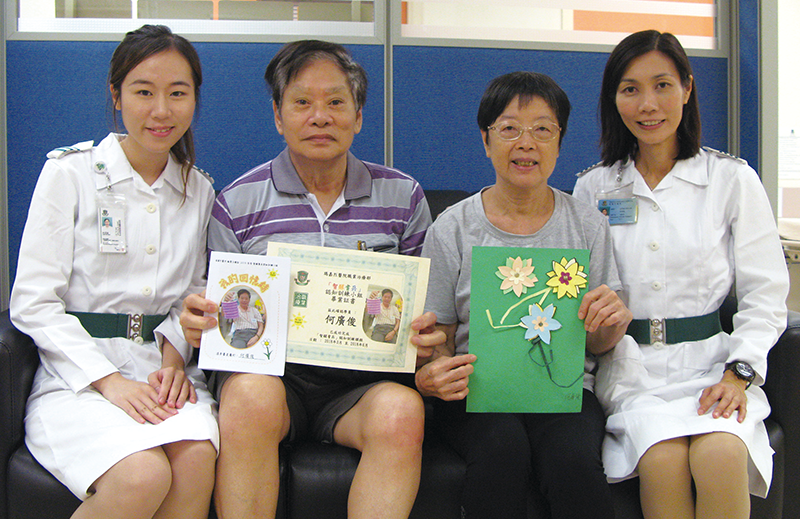Elders stay active and smart through cognitive stimulation
HA information reveals that 5% to 8% of Hong Kong citizens aged above 65 suffer from dementia in 2017. It is predicted that by 2039, 11% of the population aged above 60 will have this disease. Since 2016, Occupation Therapy Department of Princess Margaret Hospital has collaborated with memory clinic of the Medicine and Geriatrics Department to roll out ‘Be an Active and Smart Elderly (BASE) Programme’, which aims for early assessment, diagnosis and intervention to delay dementia.
Mr Ho, a BASE programme participant, is a dementia patient at early stage. He was referred to memory clinic by geriatrician and was recommended to join the programme during March to June this year. Upon completion, he expresses satisfaction in the programme. “My wife accompanied me to join the activities every week. The staff here are very patient and caring, and they prepared a lot of activities for us. My favourite one was making glutinous rice dumplings!” Mrs Ho reckons that her husband becomes more active after joining BASE programme. “Later on, he actively finished his ‘homework’ and take part in more activities at elderly centres. We talk and interact more now,” she adds.
Florence Leung, Occupational Therapist I, says that 510 patients are served in total up to July this year. Their families show positive responses towards the programme and agree that it can effectively improve participants’ cognitive abilities and delay dementia.
Be an Active and Smart Elderly Programme
1. Talk for carers
Occupational therapists introduce the disease symptoms and treatments, teach carers the proper way to communicate with patients, give information on social resources, and develop care plan.
2. Cognitive stimulation programme
The programme improves patients’ communication and cognitive abilities through diverse activities, such as reality orientation, reminiscent therapy, Baduanjin qigong exercise, traditional food and handicraft making.
3. Home programme
It helps patients to build up a healthy lifestyle and enhance the effects of group training by encouraging them to set targets and engage in different meaningful activities at home, such as physical and cognitive exercises.
4. Performance analysis
Analysis of patients’ performance before and after the programme and clinic follow-up for patients and family members.
● Load ammunition for the flu battle
COVER STORY
● 10 open dialogues on flu vaccination
● 5 examples of vaccination for healthcare workers: a global view
● 8 GVP ambassadors promote vaccination amongst staff
HELEN HA
● Sammy Leung: Blood donation is like puppy love
● Go for ‘HA Go’ app icon design contest!
PEOPLE
FEATURE
● Pets spread loving care in hospital
● Dog volunteers bring joy to sick kids on Christmas day
WHAT'S NEW
● Patient experience survey improves service quality
● Elders stay active and smart through cognitive stimulation
STAFF CORNER


